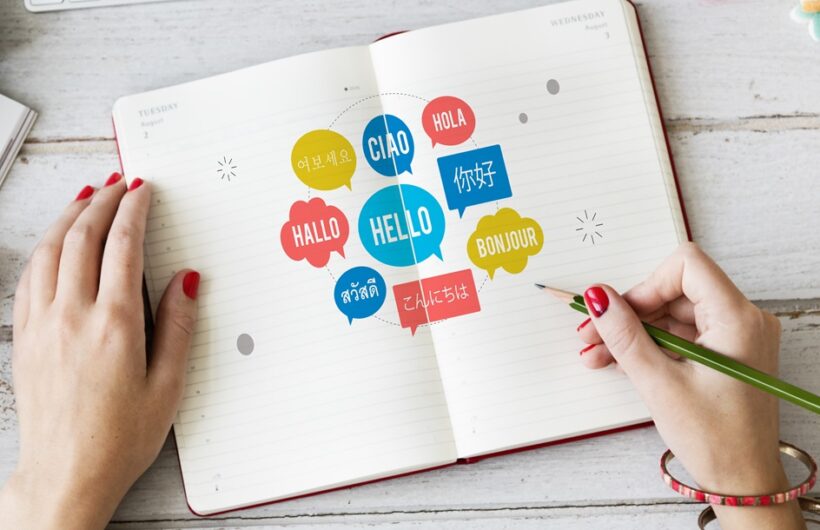Learning a second language is more than just learning new words; it’s a key to the wider world. It connects you with people globally, opening up opportunities in travel, work, and understanding different cultures. It’s also great for your brain, improving memory and thinking skills. Plus, it’s fun and fulfilling.
Curious about how it can change your life and connect you to millions of people worldwide? Read on for more insights and explore with us the benefits of learning a second language!
What is ESL?
English as a Second Language (ESL) refers to the study of English by individuals who don’t speak the language. Also referred to as English for Speakers of Other Languages (ESOL), these are programs tailored to help non-English speakers gain proficiency in the language.
To help achieve a satisfactory result, ESL programs combine an array of exercises and activities that focus on four primary skills: reading, speaking, listening, and writing. These are essential skills for language acquisition.
ESL education is essential in today’s globalized world, where knowledge of English will serve as a gateway to unlocking opportunities in areas like education, business, and academia. These programs also play a significant role in cultural exchange, allowing individuals to access broader educational and professional opportunities, and fostering global understanding and collaboration.
Benefits of Learning a Second Language
Learning a second language is much more than just an academic achievement; it’s a doorway to a multitude of benefits that extend beyond mere communication. From boosting self-esteem to improving memory and attention span, the impact of learning a second language touches every aspect of life.
1. It improves your memory
Learning a new language involves the continuous memorization and recall of new vocabulary, effectively serving as a mental workout that can improve your memory. This way, you keep challenging your brain, like a constant update.
Even studies have proven that learning a second language enhances episodic memory and cognitive function, leading to the ability to remember and retain information much better than monolinguals. Therefore, learning a new language doesn’t seem like a bad idea; a powerful brain will definitely make life easier.
2. It improves your attention span
Learning a language requires sustained focus, as it involves understanding complex rules, memorizing vocabulary, and practicing pronunciation. As proven by researchers, this continuous engagement improves attention span and concentration, and helps reduce distractions.
In real life, these enhanced focus skills can translate to better performance in tasks that demand prolonged attention, like studying for exams, completing work projects, or even driving.
3. It stimulates your brain
Learning a second language is a great brain stimulator. It challenges your mind to recognize, negotiate meaning, and communicate in different language systems. This mental exercise strengthens your brain, improving cognitive skills like problem-solving, multitasking, and memory.
Regularly using a second language can even delay cognitive aging and enhance brain resilience, making language learning not just an educational pursuit, but a beneficial mental workout. Pretty cool, isn’t it?
4. It boosts your creativity
Language diversity can boost creative thinking. Bilinguals often show enhanced creativity, as switching between languages improves mental flexibility and problem-solving. For example, studies have found that bilinguals can be more creative in certain tasks than monolinguals.
Moreover, many artists report that being able to think in different languages provides them with a richer palette of ideas and expressions, leading to more inventive and nuanced work. However, research results can vary, indicating the complex relationship between language skills and creativity.
5. It slows down cognitive decline
Recent research on bilingualism suggests that it can delay cognitive aging. Being bilingual engages the brain in complex tasks, strengthening cognitive functions. Over time, this continuous mental exercise can help maintain brain health and delay the onset of age-related cognitive decline.
Long-term benefits include better memory, enhanced problem-solving skills, and a lower risk of developing dementia and Alzheimer’s disease. These findings highlight the cognitive resilience that bilingualism can foster, contributing to a healthier, more active brain in later life.
6. It improves your first language
You might not want to believe it, but learning a second language can enhance understanding of your own native language. Mesmerizing, right? That’s because when you study a new language, you become more aware of grammar, vocabulary, and sentence structure.
For example, learning Spanish might make an English speaker more conscious of verb tenses and conjugations, leading to a better grasp of these concepts in English. The same rule applies to all languages.
7. It boosts your self-esteem
When you learn a language well, it’s like unlocking a secret world. For example, imagine going to a new country and speaking their language. Suddenly, you’re not just a visitor; you’re part of their world. You can make friends, understand jokes, and see life from a new perspective.
And that’s what will eventually help you gain more confidence and boost your self-esteem because you feel unstoppable. Language, after all, is not just about words; it’s about opening doors to new adventures and friendships.
8. It can make traveling easier
Knowing a second language is super helpful when traveling, especially English which has become the unofficial global language.
✅ Request information on BAU's programs TODAY!
Knowing another language is like having a key to the city. You can read signs, ask for directions, and order food easily. Travelers often talk about how speaking the local language helped them find hidden gems, like a cozy café or a beautiful spot not in guidebooks. They also avoid tourist traps and get better deals. Plus, locals appreciate when you try their language, often leading to friendlier interactions and a richer travel experience.
Overcoming Challenges in Second Language Learning
Once you decide to start learning a new language, you will face challenges that can make you question your decision. However, it’s important to keep your eyes on the prize, as there are many resources, tools and methodologies available that can make language acquisition a breeze.
For efficient language acquisition, it’s important to immerse yourself in the language by watching movies, listening to music, and reading books in that language. Practicing regularly, even for just 15-30 minutes a day, can be more effective than longer, less frequent sessions. Moreover, today you have numerous online tools that assist you in your language acquisition process, such as flashcard apps that are great for vocabulary building.
Understanding grammar is important, but don’t let it overwhelm you; tools like Grammarly can help. Also, learning about the culture behind the language can make the process more enjoyable and meaningful. Remember, patience and persistence are essential, and every learner’s journey is unique. Find what works best for you and stick with it.
Common misconceptions
Learning a second language might seem tough, but some common beliefs about it are just myths. But one thing is for sure: once you identify your learning style, learning a language will become so easy for you.
Now, let’s learn something about these myths. For instance, it’s a misconception that adults can’t learn as well as kids. In reality, adults can learn a new language, too, and their life experience often helps.
Another myth is that you need to travel to a country where the language is spoken to learn it well. While that helps, you can also learn effectively using online resources and language apps right at home.
People also worry about having a perfect accent. The truth is, communication is more important than perfection. Accents are a natural part of language learning. Plus, you don’t need to be fluent to start having conversations. Every little bit of progress counts.
So, don’t let these misconceptions hold you back. Learning a new language is a fun and enriching journey, open to everyone!
The Bottom Line
Learning a second language is a gateway to numerous benefits. It enriches your understanding of different cultures, sharpens cognitive abilities, and boosts career opportunities. Speaking another language allows you to connect more deeply with people globally, fostering empathy and cultural awareness. Additionally, it enhances memory, problem-solving skills, and even multitasking abilities.
Embrace this rewarding challenge – start your language learning journey now and open yourself to a world of new experiences and personal enrichment! Visit Mentora College (ESL Program) for more information, and unlock numerous language learning opportunities through the courses we offer!












